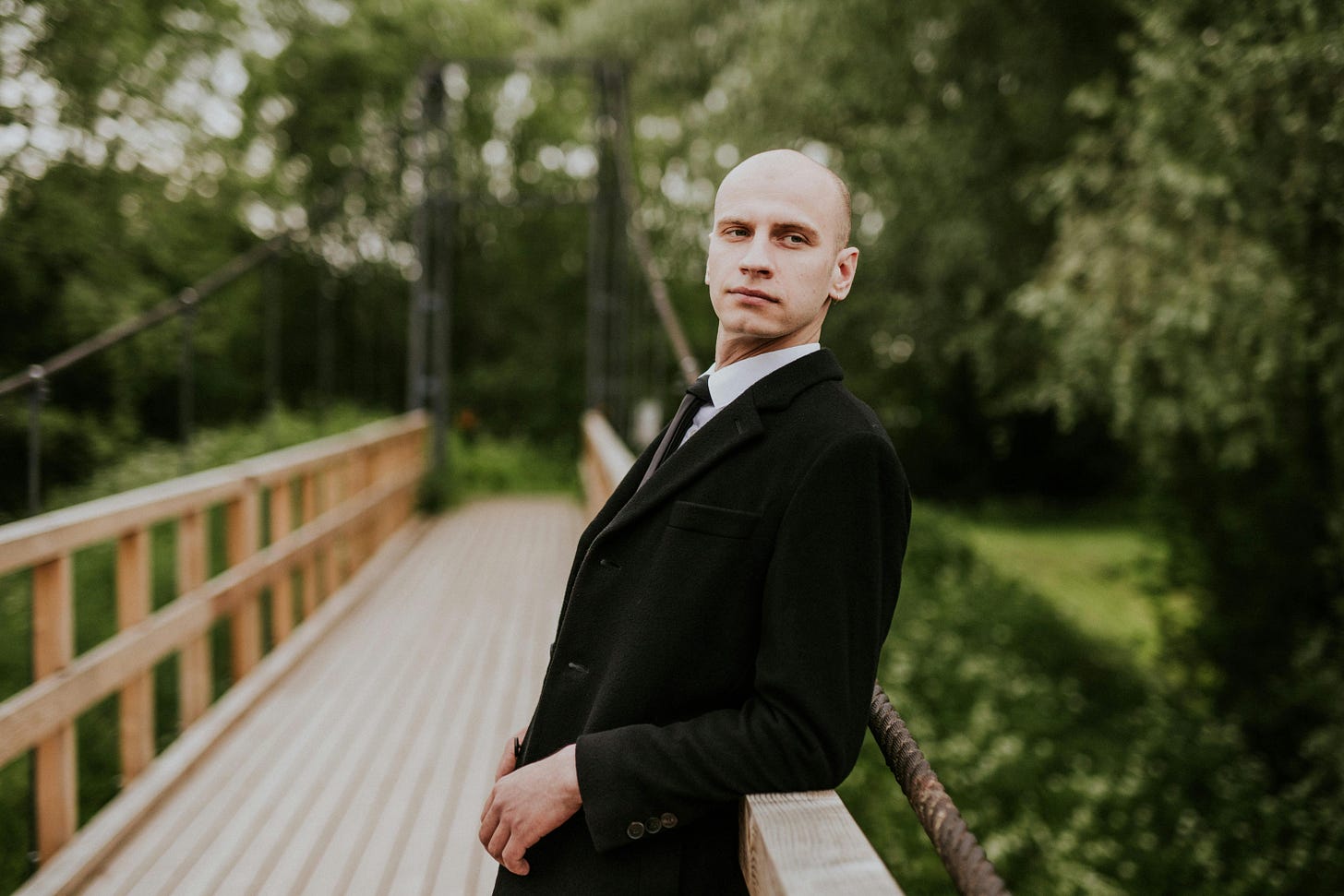The Contradiction of Balding and Male Body Positivity
Weighing personal choice versus industry-driven stigmas of the missing hairline.
I stood in front of the mirror, pulling back my hair, grimacing, and looking like I was in a Rogaine commercial. I’d just turned 19 and realized in horror that my hairline was receding. I looked at it from different angles, trying to make sure I was seeing it correctly.
“This can’t be,” I thought. Mom had always told me, “Your grandfather kept all his hair. You won’t lose it.”
She conveniently ignored that my other grandfather was completely bald by age 25. It was clear whose genes were winning.
I went into a slight panic and shaved my head despite having only mild recession at that point. Only a few years earlier, I’d seen my buddy Jared being roasted by classmates for losing his hair. I knew that teenagers bully anyone over any minor thing — but seemingly forgot their feedback wasn’t objective science on someone’s value.
That night, I wanted to get my mind off of things, so I sat down on my parent’s couch and put on the TV. There was a marathon of old-school National Geographic documentaries —those gritty, and unfiltered stories of lions chasing zebras all day.
On the screen, a majestic lion sauntered confidently across a field towards a new pack of females who had no alpha. His huge and beautiful physique filled up the entire screen. His mane was a giant black coat of fur around his neck. It made him look like an emperor.
The narrator, in his deep, soothing, godlike voice said, “Female lions are attracted to thick, darker manes on males. Thick hair is a sign of fertility and strength. Patchy manes are a sign of potential sickness and weakness.”
I fumbled around for the remote, feeling like the universe was trying to punk me and rub my face in this new problem.
Keep reading with a 7-day free trial
Subscribe to Thrive by Sean Kernan to keep reading this post and get 7 days of free access to the full post archives.





